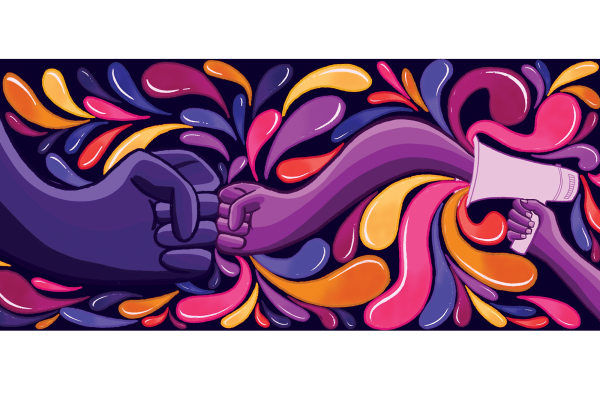FOR ARCHBISHOP JOSÉ Gomez of Los Angeles, social justice movements are “pseudo-religions.” In a November speech, Gomez said that “today’s critical theories” are “profoundly atheistic,” that they spring from a “Marxist cultural vision,” and that they “resemble” heresies in church history. He even blamed social justice movements for “causing new forms of social division, discrimination, intolerance, and injustice.”
Black Catholic theologians and others responded to Gomez’s remarks with a petition that read, in part, “Your speech was particularly painful and offensive to Black Catholic advocates in the United States who have organized for racial justice in the face of indifference and even hostility from many white Christians.” The National Black Sisters’ Conference pointed out that “BLM is not a pseudo-religion; nor is it a ‘dangerous substitute for true religion.’ It is a movement very much in the tradition of Catholic Social Teaching.” And someone ought to introduce Archbishop Gomez to Pope Francis who, in his message for World Youth Day this fall, encouraged young people to “Arise! Uphold social justice, truth, and integrity, human rights. Protect the persecuted, the poor and the vulnerable, those who have no voice in society, immigrants.”
But Gomez’s attack on social justice wasn’t only ignorant of the long tradition of Catholic social teaching. His ideologically driven manifesto, based more in partisan contemporary politics than in biblical values, directly contradicts Jesus’ instructions to his followers to be makers of peace and builders of justice, a motif that serves as a through line from Genesis to Revelation.
When church leaders such as Gomez—who is president of the U.S. Conference of Catholic Bishops—attack social justice as “atheistic” and claim it’s outside the purview of the gospel, they’re not only disparaging people who put their faith into action, they’re besmirching the gospel itself. And such a “reverse testimony”—the opposite of bearing witness to gospel truth—has consequences. Many young people see their engagement in acts of social protest, such as Black Lives Matter demonstrations, as expressions of religious or spiritual practice, according to a recent survey by the Springtide Research Institute of 10,000 people ages 13 to 25. “What’s striking is that [young people] also say they’ve received little support in their convictions from organized religion,” explained Springtide’s Josh Packard, in an analysis he co-wrote with Revs. William Barber II and A. Kazimir Brown. “Many young people today instead see organized religion as a dangerous force, one that twists the teachings of Jesus or the Quran.” Statements like Gomez’s certainly contribute to that perception.
The Christian faith is inherently incarnational—living belief is embodied in action in the world around us. To criticize such actions, especially with such politicized language, will rightly be perceived as offering a toothless, watered-down version of the gospel, one that offers comfort to the status quo and little in the way of relevance for our society and the world. It’s not surprising that that version isn’t well-received by the youngest generation. You want to reach young people? Tell the truth. And that truth includes the good news of social justice.

Got something to say about what you're reading? We value your feedback!







